
Gregory James LeMond is an American former road racing cyclist. He won the Tour de France thrice and the Road Race World Championship twice, becoming the only American male to win the former.
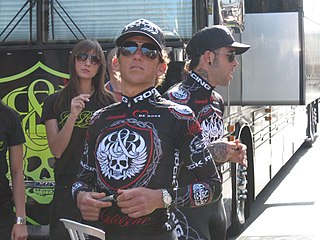
Tyler Hamilton is an American former professional road bicycle racer. He is the only American rider to win one of the five Monuments of cycling, taking Liège–Bastogne–Liège in 2003. Hamilton became a professional cyclist in 1995 with the US Postal Service cycling team. He was a teammate of Lance Armstrong during the 1999, 2000 and 2001 Tours de France, where Armstrong won the general classification. He was a key asset for Armstrong, being a very good climber as well as time-trialist. Hamilton appeared at the 2000 and 2004 Summer Olympics. In 2004, he won a gold medal at the individual time trial. The first doping test after his Olympic victory gave a positive result, but because the backup sample was frozen, no doping offence could be proven. After he failed further doping tests at the 2004 Vuelta a España, Hamilton was suspended for two years from the sport.
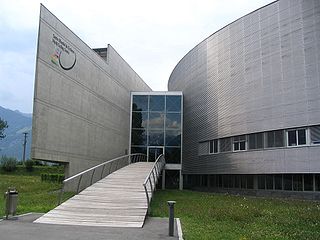
The Union Cycliste Internationale is the world governing body for sports cycling and oversees international competitive cycling events. The UCI is based in Aigle, Switzerland.

U.S. Postal Service Pro Cycling Team was a United States–based professional road bicycle racing team. On June 15, 2004, the Discovery Channel signed a deal to become sponsor of the team for the 2004–2007 seasons and its name changed to Discovery Channel Pro Cycling Team. From 2005 until 2007, the team was one of the 20 teams that competed in the new UCI ProTour. As part of the sponsorship deal, Lance Armstrong, the team's undisputed leader, provided on-air appearances for the Discovery Networks TV channels. The deal did not affect the rights of secondary sponsor OLN, later known as NBCSN in the US, to air major cycling events such as the Tour de France, although the two channels are competitors.

John James 'Sean' Kelly is an Irish former professional road bicycle racer, one of the most successful road cyclists of the 1980s, and one of the finest Classics riders of all time. From becoming a professional in 1977 until his retirement in 1994, he won 193 professional races, including nine Monument Classics, Paris–Nice a record seven years consecutively and the first UCI Road World Cup in 1989. Kelly won one Grand Tour, the 1988 Vuelta a España, and four green jerseys in the Tour de France. He achieved multiple victories in the Giro di Lombardia, Milan–San Remo, Paris–Roubaix and Liège–Bastogne–Liège, as well as three runners-up placings in the only Monument he failed to win, the Tour of Flanders. Other victories include the Grand Prix des Nations and stage races, the Critérium International, Tour de Suisse, Tour of the Basque Country and Volta a Catalunya.
Willy Voet is a Belgian sports physiotherapist. He is most widely known for his involvement in the Festina affair in the 1998 Tour de France.

Philip Alexander Liggett is an English commentator and journalist who covers professional cycling.

There have been allegations of doping in the Tour de France since the race began in 1903. Early Tour riders consumed alcohol and used ether, among other substances, as a means of dulling the pain of competing in endurance cycling. Riders began using substances as a means of increasing performance rather than dulling the senses, and organizing bodies such as the Tour and the International Cycling Union (UCI), as well as government bodies, enacted policies to combat the practice.

Rough Ride is a William Hill Sports Book of the Year, written by Irish journalist Paul Kimmage in 1990.

L.A. Confidentiel: Les secrets de Lance Armstrong is a book by sports journalist Pierre Ballester and The Sunday Times sports correspondent David Walsh. The book contains circumstantial evidence of cyclist Lance Armstrong having used performance-enhancing drugs. The book has only been published in French.
David Joseph Walsh is an Irish sports journalist and chief sports writer for the British newspaper The Sunday Times. He is a four-time Irish Sportswriter of the Year and a three-time UK Sportswriter of the Year. Walsh was the key journalist in uncovering the doping program by Lance Armstrong and the US Postal Service Cycling Team, leading to a lifetime ban from cycling for Armstrong and being stripped of his seven Tour titles.

Nicolas Roche is an Irish cyclist, who competes in gravel cycling for his own NR GRVL team. He is also a former professional road bicycle racer, who rode professionally between 2005 and 2021 for seven different teams.
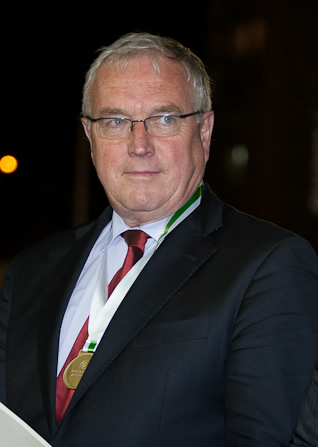
Patrick "Pat" McQuaid is an Irish former road racing cyclist who served as the president of the Union Cycliste Internationale from 2005 to 2013.

LeMond Racing Cycles is a bicycle company founded by Greg LeMond, the only American winner of the Tour de France.

The 1997 UCI Road World Championships took place in San Sebastián, Spain, between October 7 and October 12, 1997. The event consisted of a road race and a time trial for men, women, men under 23, junior men and junior women.
Hein Verbruggen was a Dutch sports administrator who was president of the Union Cycliste Internationale (UCI) from 1991 till 2005 and president of SportAccord from 2004 to 2013. He was an honorary member of the International Olympic Committee (IOC) since 2008. Previously, he was a member of the IOC and Chairman of the Coordination Commission for the Games of the XXIX Olympiad in Beijing in 2008. He is highly suspected to have protected Lance Armstrong.

Lance Edward Armstrong is an American former professional road racing cyclist. He achieved international fame for winning the Tour de France a record seven consecutive times from 1999 to 2005, but was stripped of his titles in 2012 after an investigation into doping allegations, called the Lance Armstrong doping case, found that Armstrong used performance-enhancing drugs over his career. As a result, Armstrong is currently banned for life from all sanctioned bicycling events.
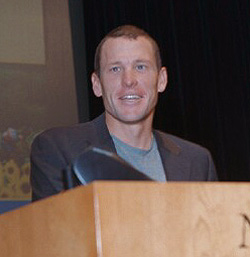
For much of the second phase of his career, American cyclist Lance Armstrong faced constant allegations of doping, including doping at the Tour de France and in the Lance Armstrong doping case. Armstrong vehemently denied allegations of using performance enhancing drugs for 13 years, until a confession during a broadcast interview with Oprah Winfrey in January 2013, when he finally admitted to all his cheating in sports, stating, "I view this situation as one big lie that I repeated a lot of times".
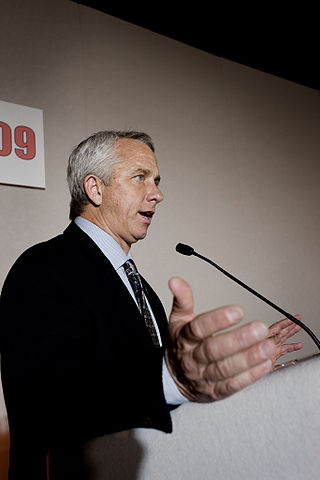
Greg LeMond competed at a time when performance enhancing drugs were just beginning to impact his sport. Rumors of improprieties existed, including USA Cycling's blood doping at the 1984 LA Olympics and Francesco Moser's same measures prior to his 1984 assault on the hour record, but legalities were not sharply demarcated and the practice was not spoken of in the open. Considered one of the most talented cyclists of his generation, from his earliest days of professional cycling LeMond was strongly against taking performance enhancing drugs, largely on the basis of the health risks such practices posed. His career lacks the suspicious results that have tarnished his successors. His willingness to speak out against doping and those prominent individuals involved inadvertently linked him with the sport’s doping scandal controversies. In his opposition to fraud, corruption and what he saw as complicity on the part of cycling officials, LeMond became a lightning rod with the sports most prominent personalities.

United States Anti-Doping Agency v. Lance Armstrong, the Lance Armstrong doping case, was a major doping investigation that led to retired American road racing cyclist Lance Armstrong being stripped of his seven consecutive Tour de France titles, along with one Olympic medal, and his eventual admission to using performance-enhancing drugs. The United States Anti-Doping Agency (USADA) portrayed Armstrong as the ringleader of what it called "the most sophisticated, professionalized and successful doping program that sport has ever seen."
















